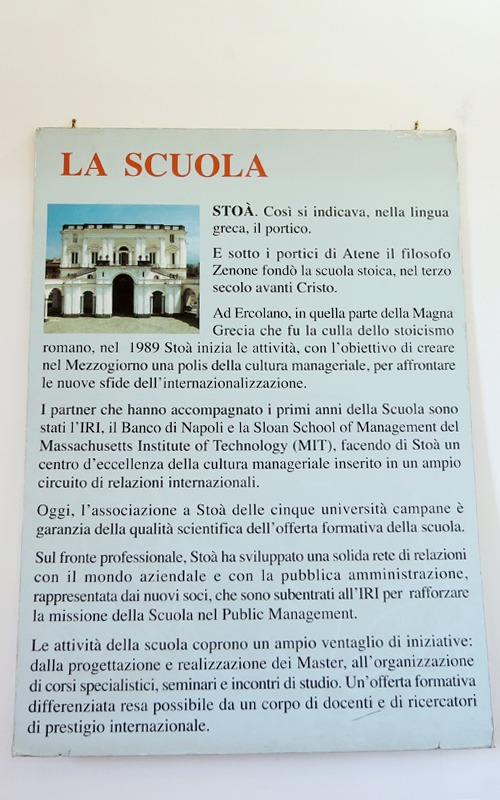The name Stoà has its roots in classical culture. In ancient Greek, stoà literally means "portico," but its symbolic meaning is much deeper: it evokes a place open to dialogue, knowledge, and sharing among equals.
It is right under the porticoes of Athens that, in the 3rd century BC, the philosopher Zeno founded the Stoic school. A school that made reason, justice, and brotherhood among men its cornerstones. As summarized by George H. Sabine in his History of Political Doctrines, Stoicism was based on the idea of a natural equality among all human beings, united by a common belonging and a universal vision of justice.
Our name and our historic logo thus evoke that ideal portico: an open, inclusive place where knowledge is not a privilege of the few, but a heritage to be shared with anyone who wishes to grow, evolve, and contribute.
This is the vision that drives the Stoà Business School: to offer every motivated individual the opportunity to build their professional future with awareness, an innovative spirit, and full appreciation of their potential.
This vision has always guided the project of the Stoà Business School and continues today to inspire our commitment to designing educational paths capable of responding to the challenges of a rapidly changing world. In an era marked by accelerated technological transformation and profound economic and social changes on a global scale, we believe it is essential to offer educational tools that combine skills, awareness, and adaptability.
For this reason, our approach to training is focused not only on the transfer of knowledge and skills but also on valuing the individual as a responsible actor in their own professional future and in collective progress.

